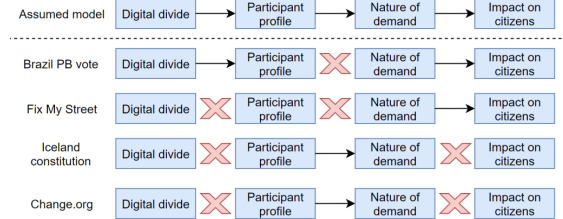 One of the papers examines the relationship between paid maternity leave and the share of female workers in registered private firms by using firm-level survey data for 111 developing and emerging countries. Photo © Dominic Chavez/World Bank
One of the papers examines the relationship between paid maternity leave and the share of female workers in registered private firms by using firm-level survey data for 111 developing and emerging countries. Photo © Dominic Chavez/World Bank
This blog is a biweekly feature highlighting recent working papers from around the World Bank Group that were published in the World Bank’s Policy Research Working Paper Series. This entry introduces four papers published in the second half of September 2022 on various topics, including paid maternity leave, climate policy and inequality, the performance of local politicians among others.
The first two papers we introduce delve into topics related to politics and civil society. In Money versus Kudos: The Impact of Incentivizing Local Politicians in India, Vijayendra Rao and coauthors explore how to improve the performance of elected officials and motivate them to act more equitably. In The Haves and the Have Nots: Civic Technologies and the Pathways to Government Responsiveness, Tiago C. Peixoto and coauthors examine whether political inequalities are exacerbated due to differences in access to technology.
-
Money versus Kudos: The Impact of Incentivizing Local Politicians in India reports on an experiment that motivates elected politicians not by increasing their salaries, but by randomly assigning better-graded politicians with either a higher public budget, or with kudos—a nonfinancial incentive in the form of a public certificate that they can use in election campaigns, or to a control group. The experiment was conducted in the state of Tamil Nadu in southern India. The findings show that both incentives improved access to public investments and private transfers in the villages of incentivized presidents. The nonfinancial incentive also led to a more equitable between-hamlet allocation of resources within the village, and this effect was more acute with officials who faced potentially more competitive elections.
-
The Haves and the Have Nots: Civic Technologies and the Pathways to Government Responsiveness reviews four cases of public participation on civic technologies (civic tech) platforms where data from existing studies allow the authors to trace the full process of inequality through 1) the initial digital divide, 2) participants’ demographics, 3) demands made through the process, and 4) policy outcomes. The authors examined online voting in the Brazilian state of Rio Grande do Sul’s participatory budgeting (PB) process, the local problem reporting Fix My Street (FMS) platform in the United Kingdom, the Iceland online crowdsourced constitution process, and the global petitioning platform change.org. The authors find that in every case, the assumed links in the participation chain broke down because of the platform’s institutional features and the surrounding political process.
Figure 1. The assumed model of inequality in digital participation and the empirically observed relationships across the four case studies. The crosses show where the hypothesized relationship failed to hold. In all four cases, at least one of the hypothesized links failed to hold, breaking the link between the digital divide and beneficiaries of digitally mediated civic participation

The final two papers we introduce in this roundup examine two timely topics. In The Impact of Paid Maternity Leave on Women’s Employment: Evidence Using Firm-Level Survey Data from Developing Countries, Mohammad Amin and Asif M. Islam analyze the relationship between paid maternity leave and the share of female workers in registered private firms. In Climate Policy and Inequality in Urban Areas: Beyond Incomes, Paolo Avner and coauthors investigate the impact of a fuel tax on both spatial and income inequalities.
-
The Impact of Paid Maternity Leave on Women’s Employment: Evidence Using Firm-Level Survey Data from Developing Countries examines the relationship between paid maternity leave and the share of female workers in registered private firms by using firm-level survey data for 111 developing and emerging countries. Theoretically, the relationship can be either positive or negative. Higher maternity leave raises the cost of female workers to the employer, discouraging female employment. However, higher maternity leave encourages more females to enter the labor market, implying greater female employment. The results show that the latter effect dominates. That is, a positive, large, and statistically significant relationship is found between maternity leave and female employment. Figure 2 below shows that there is a positive relationship between the share of female workers in a typical firm in the country and maternity leave
Figure 2: Female workers and maternity leave relationship
-
Climate Policy and Inequality in Urban Areas: Beyond Incomes uses Cape Town, South Africa as a case study to investigate the impact of a fuel tax on both spatial and income inequalities. The findings reveal strong evidence that in the short term, there are both income and spatial inequalities, with households being more negatively impacted by the fuel tax if they earn low incomes or live far from employment centers. In the medium and long term, these inequalities persist: the poorest households, living in informal settlements or subsidized housing, have few or no ways to adapt to changes in fuel prices by changing housing type, adjusting their dwelling sizes or locations, or shifting transportation modes.




Join the Conversation